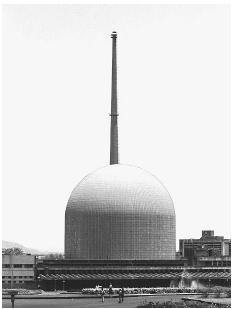



Today
K. J. Somaiya Institute Of Management Studies & Research saw a special Guest Lecture Series organised at its doors.
The occassion was the inaguration or introduction of a New Course on
Corporate Governance
called the 'The Corporate GRAND PRIX - Gearing for Success' for the SIMSR students.
And who will be the faculty for the new course :- the people named in bold were present for the inaugural session.
- Mr. Narendra D. Desai, Chairman, Apar Industries
- Mr. Anil Agarwal, Executive Chairman, Vedanta Resources, Sterlite Industries, Balco, Hindustan Zinc etc.
- Mr. Hrishikesh Mafatlal, V. Chairman & MD, Mafatlal Industries Ltd.
- Mr. Ajay Piramal, Piramal Industries
- Dr. Avinash Deolekar, Vice-President-HRD Capability, WMU, PEPSICO.
- Mr. Deepak Bharwani
- Mr. Rajesh Talwar
- Mr. Shashi Rao
- Mr. Ujwal Jajoo
- Mr. Sandeep Singh
Also presiding the occasion was our Director General Prof. P. V. Narasimham & Director Prof. S. C. Ghai
Chief Speaker Mr. Narendra Desai, gave a keynote address on - Ethics & Corporate Governance. Also during his speech there was a surprise appearence of Mr. Anil Agarwal of Vedanta Resources (coming straight from London to interact with students) (he then interacted with the students for atleast an hour)
He started by defining Ethics & Morals from the oxford dictionary a standard accepted by even the Supreme Court of India. Then he asserted the fact that ethics are governed by 3 basic aspects for humans. They are
- Local Customs & Historical Basis of authority
- Time changes & does the ethics change with time? was the question
- Supreme or Eternal presence of ethics.
He said that in business or personal life the sanskrit principal of "Vivek" should prevail and Read your Atma or soul and follow it.
We have a right to live & constitution is there for our defence.
- He took a case study on ENRON and quoted his personal experience of constructing a part of the Dabhol plant & fuel pipeline project. To which he said that there was a total lack of trust in the Enron People. Before establishing a business they were talking of exiting it.
- At the end of the discussion he pointed out that corporate governance and ethics come from an Ethics Based institution Of EXPERIENCE !
- He also spoke of the importance of Negotiations in Business and The Institution of International Negotiations.
Taking the recent case of a Patent Dispute he asserted that
- Check what are the ethics of the other person
- You must have guts to say "NO"
--------------------------
The other Dignitory Mr. Hrishikesh Mafatlal then spoke on "human aspects of Business"
He said leadership means taking responsibility.
- He took the cases on GE, Jack Welch & others and said that managers make mistakes but they have to learn from those mistakes.
- He said managers must exhibit flexibility, Adating attitude & be ready for Embrassing Change
- He said you need enthusiasm for the job you do.
- He said work with those who share the same vision & are trust worthy, trust is indespensible.
- He said Prepare relentlesly for your work and exhibit a degree of fairness in your interactions with others.
- He stressed on the importance of Value based & personality based decision Making.
CEO's Reccommendations: A book called APPLE'S are Square
he said this book explores 6 dimensions of leadership
Humility
Transparency
Compassion
Collaborativeness
Value based Accession or decision making
and 1 more which i dont remember
He asserted that in all this corporate world there is one common binding thread which is called "the Element of Spirituality" - which makes us humble & this is the force behind the success of these successful businessman.
He said that this enables us to believe that we can learn from others & Accept that there is something higher above us.
----------------
The Next Dignitory was then Mr. Avinash Deolekar, VP HR PEPSICO India
He spoke on a case on Situational Leadership & then the PEPSICO corporate philosophy & vision, Mission
Their Model is called "Winning Minds & Hearts"
He then gave the three parameters or principle deliverables at Pepsico.
Sustained Growth
Empowered People
Acting with Responsibility & Trust
He then highlighted the assence of spiritual quotient required in managers.
---------
Then the GM, HR, US Vitamins Ltd. Mr. Sanjeev Singh spoke on
maintaining the Locus of Control Internally foccused
And Stressed on keeping yourself Balanced in life.
---------
Then In the Vote of Thanks, Our Director General Prof. Narasimham said thanking
all the dignitories that - the common quotient of all the speakers is the spirituality & success that all the eminent people came on the same dias to pass the secrets to the students. He also said that
Corporate Governance & Ethics say that 'clean your stables'.
He said that in today's world Value systems & Intellectual Conciousness are extremely necessary.
He said be truthful to yourself & fundamental values are ETernal.
He gave the Analogy of Men & a SteeL Blade.
He said that people in business should not loose Temper, which is the biggest evil for them while the temper in case of a steel blade was its sharpness.
If people loose their temper they are of no use in the same way if the steel blade looses its sharpness it is of no use.
------------
This is our Account of the Wholesome Evening we had at SIMSR Auditorium.
(Photographer RKK)
On behalf of Analytics News Wire 99 Team.
RKK




































